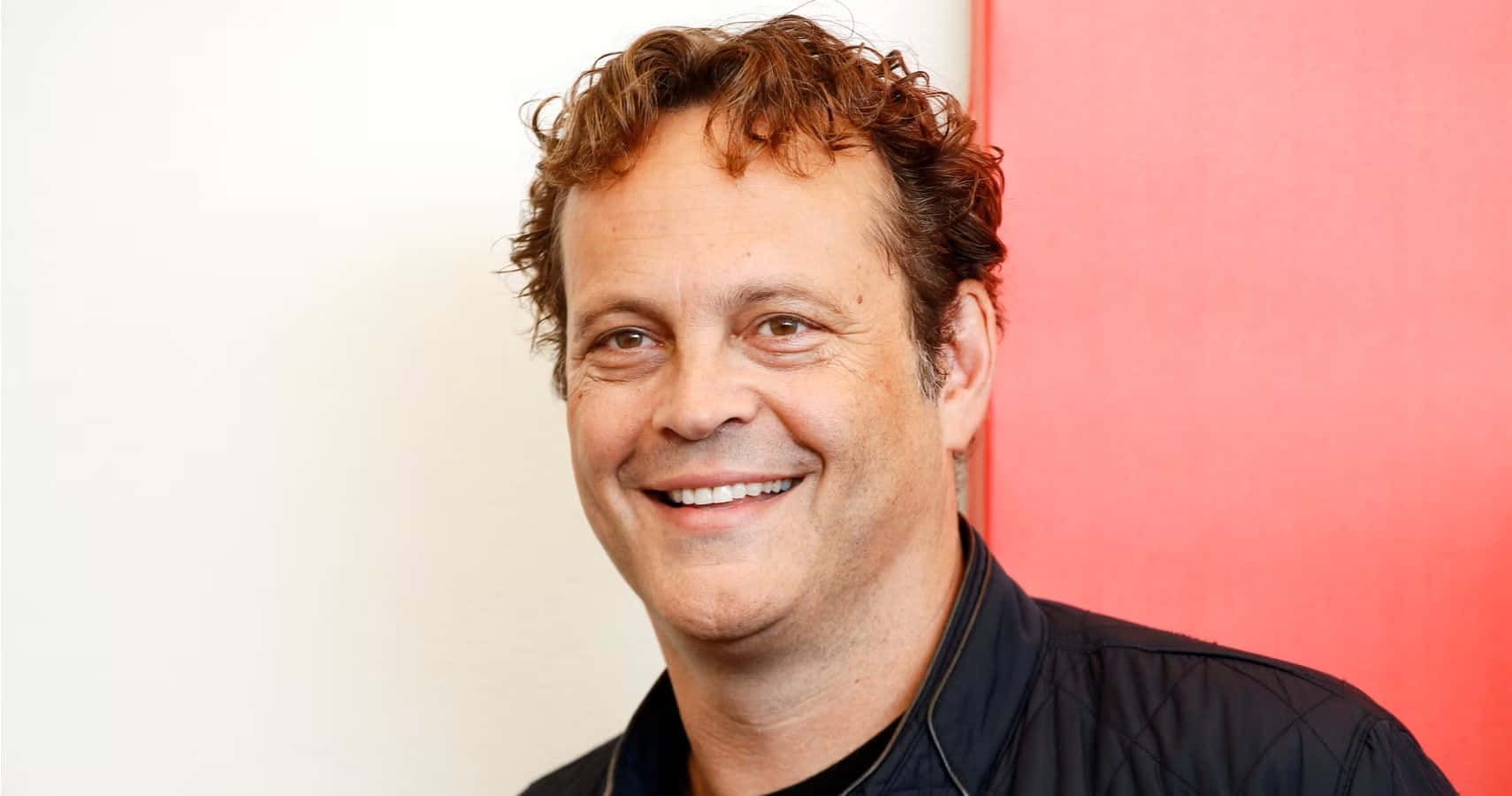
Vince Vaughn. The name alone conjures images of rapid-fire dialogue, charmingly chaotic characters, and the undeniable swagger that defined a generation of R-rated comedies. From his breakout role in 1996’s “Swingers” to box office giants like “Dodgeball: A True Underdog Story” and “Wedding Crashers,” Vaughn was a fixture in Hollywood, establishing himself as a comedic leading man. His on-screen presence was often synonymous with laugh-out-loud moments and irreverent humor, making him a beloved figure in pop culture.
However, in recent years, the once-ubiquitous star seems to have stepped back from the relentless glare of the spotlight. While he hasn’t disappeared entirely, the frequency of his major film releases and high-profile comedic roles has noticeably diminished, leading many fans and industry observers to wonder: “What happened to Vince Vaughn?” This isn’t a story of vanishing from the industry, but rather a complex tapestry of strategic career pivots, evolving personal priorities, and the ever-shifting landscape of Hollywood itself.
To truly understand why we don’t hear from Vince Vaughn with the same regularity as before, we must delve into a multitude of factors that have influenced his trajectory. From the performance of his films and crucial changes in his professional team to his burgeoning interests behind the camera and a profound shift in personal priorities, Vaughn’s career path has been a testament to adaptation and introspection. We’ll explore the real reasons behind his transformed presence in the entertainment world, offering a comprehensive look at the choices and circumstances that have shaped his journey.

1. The Box Office Blues: How a String of Underperforming Films Derailed His Comedic Stride
For a star who once commanded the box office with ease, a noticeable downturn in the commercial performance of several films played a significant role in Vince Vaughn’s career re-evaluation. After a string of successful projects that culminated with “The Break-Up” earning over $100 million in the United States in 2006, the subsequent years saw a different trend. This shift in audience reception wasn’t just a minor dip; it represented a critical juncture that prompted Vaughn to reflect on his creative output and the direction his career was taking.
One of the starkest examples of this commercial struggle came with “The Dilemma” in 2011. Despite a substantial budget of $70 million, the film managed to bring in just $17.8 million during its opening weekend, a figure far below expectations for a star of Vaughn’s caliber. This performance was followed by an even more challenging reception for his 2012 movie, “The Watch,” which, with a budget of $68 million, earned a mere $12.8 million during its opening weekend. These figures indicate a clear disconnect between the films and their intended audience, signaling a potential fatigue with the “assembly-line comedies” Vaughn himself would later describe.
album
Vaughn openly acknowledged these challenges, reflecting on the situation in a 2015 interview with GQ. He noted that he “got sucked onto a sort of conveyer belt,” elaborating on “the cliché, but it’s true. I started doing what I would now call assembly-line comedies.” This candid admission highlights a sense of creative stagnation that can often accompany commercial pressures in Hollywood. The desire to maintain a certain output, especially within a successful genre, can lead to repetitive projects that eventually fail to resonate with viewers, ultimately impacting a star’s bankability and enthusiasm for continued work in that vein. His 2015 movie “Unfinished Business” further underscored this trend, bringing in under $5 million during its opening weekend after $35 million was spent on the film, marking a career low for Vaughn at the time and cementing the need for a significant change in direction.
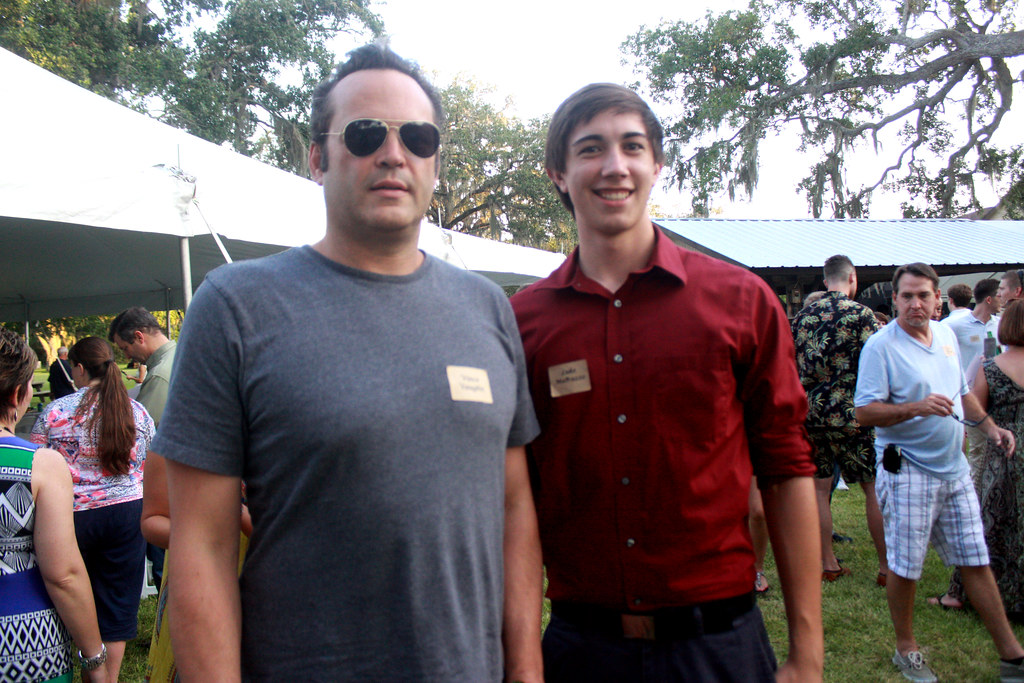
2. Behind the Scenes Battles: Navigating Agency Shifts and Team Dynamics
Beyond the fluctuating box office receipts, Vince Vaughn also faced significant challenges within his own professional support system, leading to a period of instability concerning his management and agency representation. The dynamic between an actor and their team is crucial for career navigation, project selection, and overall output, and any disruption in this relationship can have profound effects. For Vaughn, issues surfaced after the release of his 2007 movie “Fred Claus,” a film that, while starring Vaughn as the sarcastic older brother of Santa Claus, didn’t achieve the same critical or commercial heights as some of his earlier collaborations with director David Dobkin.
In 2008, Vaughn made a pivotal decision, parting ways with both his long-time manager Eric Gold and the United Talent agency. He later revealed to GQ that this separation was spurred by considerable internal discord, stating, “There was a ton of bad blood between my manager and my agent,” which led to the parties “not speaking for months.” Such an environment of tension and non-communication is hardly conducive to strategic career planning or effective project development, undoubtedly impacting Vaughn’s ability to maximize his opportunities and navigate his film choices with clarity.
This period of transition saw Vaughn move to Creative Artists, an agency that, while prominent, didn’t quite offer the synergy he sought. He candidly admitted, “I liked the new guys; they had some decent ideas but I didn’t have the same sort of rapport as I’d had with my previous team.” This lack of strong personal and professional connection, as Vaughn highlighted, “can affect your output, especially if you’re not communicating brilliantly.” The importance of trust and strong rapport with one’s representatives cannot be overstated in the entertainment industry, and its absence clearly contributed to Vaughn’s feeling of disconnect. This led to another change in March 2015, following the disappointing performance of “Unfinished Business,” when he dropped Creative Artists in favor of the William Morris Endeavor agency, and later, in October 2020, signed with the management company Range Media Partners, indicating a prolonged search for the right professional alignment.
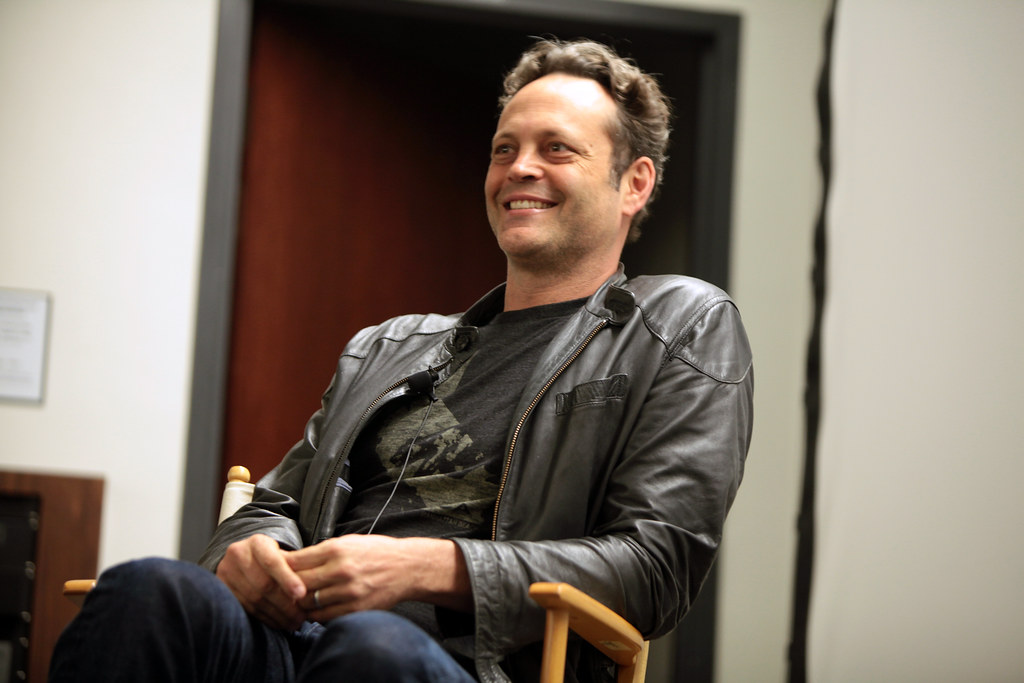
3. Producing His Own Path: Vince Vaughn’s Foray into Filmmaking and Creative Control
Amidst the challenges of underperforming films and agency transitions, Vince Vaughn began to actively reclaim power over his career by shifting some of his focus from solely acting to developing projects behind the camera. This strategic pivot reflects a desire for greater creative control and a proactive approach to shaping his own professional narrative, rather than being solely reliant on offers presented by external teams or studio executives. It’s a common move for established actors seeking longevity and deeper engagement with the filmmaking process.
A significant step in this direction was the launch of his own film company, Wild West Productions, in 2005. Though he has continued to appear in multiple films since founding the company, in recent years, his focus has seemingly turned to developing projects through his imprint. This venture allowed him to explore different storytelling avenues, moving beyond the “assembly-line comedies” he had become known for, and offered a crucial outlet for his creative energies, enabling him to initiate content that aligned more closely with his personal vision and interests.
Wild West Productions has been responsible for bringing several notable projects to fruition, showcasing Vaughn’s eclectic tastes and commitment to varied content. For instance, the company produced the adult animated series “F Is For Family,” which aired on Netflix from 2015 to 2021. They also played a key role in developing ESPN’s acclaimed 2016 “30 for 30” episode, which highlighted the historic 1985 Super Bowl championship of the Chicago Bears, a team Vaughn is known to be a fan of. More recently, in January 2022, it was announced that Vaughn would produce a sequel to the beloved 1983 film “A Christmas Story” titled “A Christmas Story Christmas” through Wild West Picture Show Productions for Warner Bros. Pictures and HBO Max, demonstrating a continued commitment to varied and high-profile production work.
This behind-the-scenes engagement offers a different kind of industry presence, one that is less about starring in every major film and more about crafting the content itself. In his GQ chat, Vaughn emphasized this shift, stating, “The machine can make you idle. Like anything in life, you’re either growing or you’re dying.” This sentiment underscores his drive to avoid stagnation and actively pursue growth through production, even if it means a reduced on-screen output and a different kind of public visibility.

4. Family First: Prioritizing Parenting and Becoming More Selective with Roles
One of the most profound and heartwarming reasons behind Vince Vaughn’s recalibrated career trajectory is a deliberate choice to prioritize his family life and, in turn, become significantly more selective about the acting projects he takes on. The demands of a prolific acting career, especially one that involves extensive travel and long hours on set, can often clash with the responsibilities and joys of raising a family. For Vaughn, this balance became a conscious decision, influencing his professional choices and leading to a more measured approach to Hollywood.
Vaughn married Canadian realtor Kyla Weber on January 2, 2010, and together they are raising two children, Locklyn, born in 2010, and Vernon, born in 2013. The birth of his children marked a clear turning point, instilling a desire to be present and engaged in their upbringing. In an interview with The New York Times, Vaughn explicitly stated this shift, noting, “I definitely got more selective.” This isn’t merely a passive statement; it reflects an active choice to filter opportunities through the lens of family impact, ensuring that the roles he accepts align with his personal values and allow for precious time at home.
The concept of “family first” for Vaughn is not just a platitude; it’s evident in his public remarks and actions. At the Los Angeles premiere of “Bad Monkey,” his 2024 AppleTV+ drama series, he shared insights into his home life with Us Weekly, emphasizing the joyous atmosphere: “We laugh a lot. My wife’s very funny and my kids are terrific.” This personal fulfillment undoubtedly contributes to his willingness to step back from the constant grind of Hollywood. Further illustrating the centrality of his family, Vaughn’s wife, Kyla Weber, and their two children accompanied him to his Hollywood Walk of Fame ceremony in August 2024, a significant career milestone that he chose to celebrate with those closest to him, reinforcing the deep personal priorities that now guide his professional decisions. This shift towards a more balanced life, where acting is a passion pursued with discernment rather than a relentless pursuit of fame, is a key component of why his presence in the public eye has evolved.

5. Keeping Busy Off-Screen: From Poker Tables to Pickleball Courts
While Vince Vaughn’s on-screen presence might seem less frequent, it’s essential to recognize that he has been far from idle; instead, he’s actively engaged in various off-screen ventures, demonstrating a multifaceted approach to his career and interests beyond traditional acting roles. These endeavors have allowed him to maintain a significant public profile, albeit in different arenas, showcasing his diverse passions and keen business acumen. This strategic diversification highlights a star who is thoughtfully shaping his professional portfolio, rather than simply fading from the persistent glare of the entertainment industry spotlight. His choices reflect a deliberate shift towards opportunities that offer both personal fulfillment and a new kind of creative engagement.
One of the most notable examples of Vaughn’s expanded interests is his enthusiastic foray into the exhilarating world of professional poker. In November 2021, he was bestowed with the honor of being named the celebrity “Master of Ceremonies” for the prestigious 53rd annual World Series of Poker. This high-profile event, a cornerstone in the international poker circuit, ultimately commenced its thrilling run in Las Vegas in 2022, placing Vaughn at the very heart of a major, non-acting public spectacle. This prominent role clearly underscores not only his personal enjoyment of the game but also his willingness to embrace and thrive in opportunities that resonate deeply with his personal hobbies and competitive spirit, proving that his engagement with entertainment culture extends far beyond the confines of a traditional movie set.
Beyond the poker tables, Vaughn has also made a significant splash in the rapidly growing sport of pickleball, an unexpected yet intriguing venture. He has taken a majority ownership stake in the Coachella Valley Scorpions, a team within the National Pickleball League (NPL). This particular league, which launched in 2023, is specifically designed for players aged 50 and up, indicating a thoughtful and strategic investment in a sport with a dedicated and rapidly expanding fan base. This move is a clear indicator of his entrepreneurial spirit and his astute ability to spot emerging trends outside of mainstream Hollywood’s typical investment circles.
Vaughn’s personal connection to pickleball is readily evident in his public statements regarding his investment, which go beyond mere financial interest. As quoted by The Wrap, he expressed his genuine enthusiasm: “I have always enjoyed the game and in meeting [co-owner] Kim [Jagd] I was impressed with her, not only as a player, but her passion and style of coaching.” This highlights not just a shrewd business move, but a genuine appreciation for the sport and its burgeoning community. Such ventures provide him with a different kind of creative and personal fulfillment, distinctly separate from the often-intense pressures of film production and acting.
Ultimately, these diverse off-screen pursuits illustrate that Vince Vaughn is actively shaping a dynamic career path that extends well beyond his comedic roots and traditional acting commitments. They serve to confirm that his reduced visibility in major film releases is not due to a lack of activity or professional engagement, but rather a strategic reallocation of his valuable time and energy. With an estimated net worth of $70 million, Vaughn appears to be thriving, leveraging his resources and influence in a variety of exciting new ways, proving that success in Hollywood can indeed take many compelling and unconventional forms.
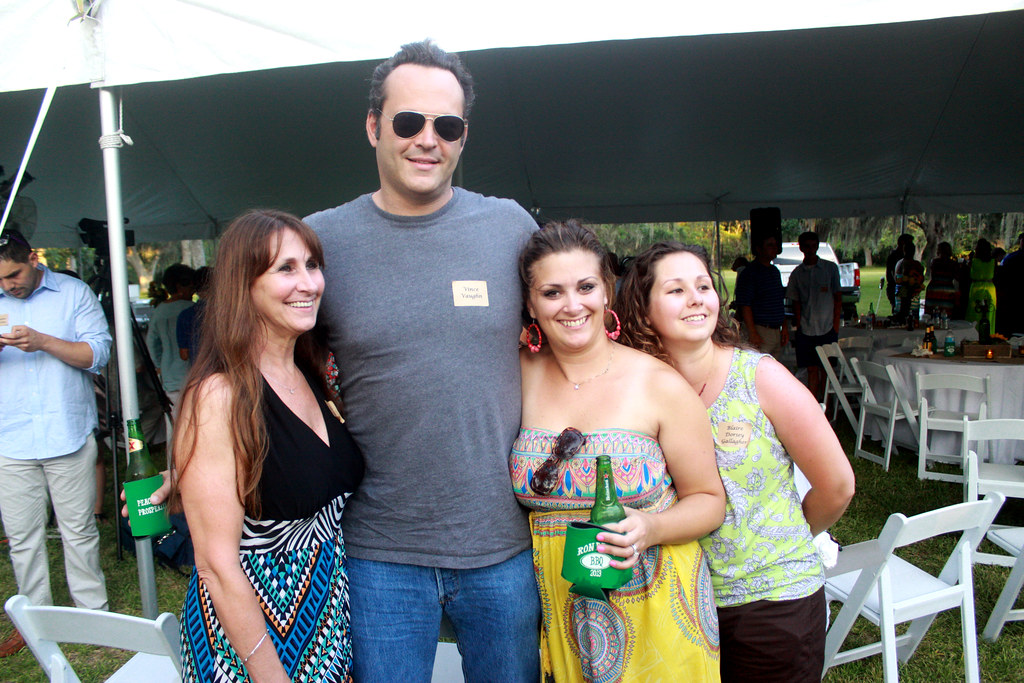
6. The Shifting Sands of Laughter: Vince Vaughn’s Take on R-rated Comedies
For many devoted fans, Vince Vaughn is practically synonymous with the vibrant golden era of R-rated comedies, a genre that once represented his most notable and financially successful ventures. Iconic titles like “Swingers,” “Dodgeball,” and “Wedding Crashers” brilliantly showcased his unique brand of rapid-fire dialogue, charmingly chaotic characters, and irreverent humor, solidifying his status as a comedic powerhouse. However, Vaughn himself holds a distinctive perspective, believing that this specific genre has undergone profound and challenging changes, leading to a landscape that no longer offers the same exhilarating creative freedom or sharp comedic edge it once did. His candid insights provide a critical lens through which to understand why his output in this particular comedic space has noticeably stalled.
In a particularly revealing conversation with The New York Times, Vaughn vividly elaborated on the uninhibited and collaborative environment that fostered the immense success of his earlier R-rated hits. He fondly recalled a time when studios actively encouraged comedic talent to experiment and innovate, rather than micromanage every creative decision. He specifically noted, “The R comedies that took off was the studio saying to young people that were funny, ‘Go ahead.’ They didn’t micromanage.” This refreshingly hands-off approach extended to the very process of filmmaking, with Vaughn adding, “We were on the sets changing lines and trying to make each other laugh,” suggesting an organic, spontaneous, and deeply collaborative creative flow that fueled truly original humor.
According to Vaughn’s discerning observations, this invaluable creative freedom, which was once the fundamental bedrock of these wildly successful comedies, has significantly and regrettably eroded. He candidly expressed his view that the entertainment industry’s dynamic has shifted dramatically, making it increasingly difficult to push artistic boundaries without facing undue scrutiny or hesitation. During a compelling 2024 appearance on the popular show “Hot Ones” with host Sean Evans, Vaughn articulated this growing concern, stating, “The people in charge don’t want to get fired more so than they’re looking to do something great.” This sentiment clearly points to a more cautious, risk-averse environment where genuine creative ambition might be stifled by corporate fear, a stark and disheartening contrast to the earlier, more daring days of his illustrious career.
Beyond the shifting creative environment, Vaughn also thoughtfully addressed the ongoing debate surrounding the concept of “wokeness” and its perceived impact on the R-rated comedy genre. This topic is frequently discussed by those who attribute a decline in the genre’s boldness to an increased emphasis on political correctness. While Vaughn didn’t explicitly endorse a specific political stance as the sole cause for the genre’s transformation, his insightful comments to The Times undeniably reveal a strong personal preference for provocative, challenging, and unfiltered content. He powerfully remarked, “But anyone into censorship or banning stuff — it’s never been anything I think is cool […] I like stuff that’s provocative and challenging and committed to a point of view.” This statement profoundly underscores his artistic values, which firmly lean towards bold, boundary-pushing storytelling.
Ultimately, Vaughn’s deeply considered insights into the evolution of R-rated comedies provide a compelling and multifaceted explanation for his notably reduced involvement in the genre that first launched him to widespread stardom. The diminished creative autonomy and the increasing reluctance within the industry to embrace truly provocative material likely contribute significantly to his strategic decision to actively explore other artistic avenues. His strong preference for projects that are “provocative and challenging” suggests that if the contemporary comedic landscape no longer aligns with his discerning artistic vision, he will naturally and proactively gravitate towards roles and ventures that do, further explaining the intriguing new direction his distinguished career has taken.

7. A New Chapter: Embracing Dramatic Depth and Television Landscapes
As Vince Vaughn consciously steered his remarkable career away from the often-formulaic “assembly-line comedies” he himself once candidly described, he embarked on a significant and truly deliberate transition into more dramatic and television roles. This strategic shift was far more than merely a passive acceptance of new acting offers; it was a proactive and determined choice to fundamentally broaden his artistic range and to challenge himself with deeply complex characters and compelling new forms of storytelling. It profoundly represents a maturation as an actor, showcasing his impressive versatility far beyond the quick-witted, charming rogue persona for which he was initially, and widely, celebrated. This evolution speaks volumes about his artistic ambition and his desire for sustained growth.
One of the most prominent and critically acclaimed examples of his impressive dramatic pivot was his powerful starring role in the second season of HBO’s highly esteemed anthology crime drama series “True Detective” in 2015. In this gritty series, Vaughn delivered a compelling performance as Frank Semyon, a career criminal deeply entrenched in a morally ambiguous and perilous world—a character starkly removed from his familiar comedic roots. This dramatic turn was a bold and unequivocal statement, powerfully demonstrating his innate capability to inhabit complex, darker, and more nuanced roles with profound conviction. Following this success, he continued to explore the depths of dramatic cinema, featuring prominently in films such as the emotionally resonant war drama “Hacksaw Ridge” (2016), the intensely visceral crime thriller “Brawl in Cell Block 99” (2017), and the brooding “Dragged Across Concrete” (2018), each further cementing his serious dramatic bona fides. He also showed his versatile range in the inventive horror-comedy film “Freaky” (2020), adding another intriguing layer to his already diverse filmography.
Vaughn’s keen embrace of television extends significantly beyond one-off dramatic roles; he has also skillfully delved into recurring parts in a variety of successful series, impressively showcasing his adaptability to the unique demands of the episodic format. From 2018 onwards, he lent his distinctive voice to the character of Chet Stevenson in the adult animated Netflix sitcom “F Is for Family,” a creative project notably also produced by his own company, Wild West Productions. This return to comedy, albeit in an animated and distinctively different format, beautifully demonstrates his comfort and versatility across varied mediums. Additionally, he took on the memorable role of Freddy Funkhouser in the popular and long-running HBO comedy series “Curb Your Enthusiasm” from 2020 to 2024, proving unequivocally that he can still deliver engaging and hilarious comedic performances within a new and beloved framework, captivating audiences in fresh ways.
His steadfast commitment to the evolving landscape of television continued with a highly significant main role in the anticipated 2024 Apple TV+ drama series “Bad Monkey.” In this intriguing series, Vaughn compellingly portrays Andrew Yancy, a detective who undergoes a unique transition into a restaurant inspector—a role that promises an engaging blend of dark humor and sharp investigative drama. This particular project, brilliantly created by the acclaimed Bill Lawrence, made its eagerly awaited debut on August 14, 2024, and powerfully signifies Vaughn’s ongoing dedication to high-quality streaming television. It serves as another clear and resounding signal that Vaughn is strategically and thoughtfully building a vibrant career that thrives across diverse platforms and genres, consistently prioritizing compelling and original narratives over predictable, typecast roles.
This deliberate and insightful shift into dramatic and diverse television roles vividly illustrates a thoughtful and profound evolution in Vince Vaughn’s remarkable career. It truly reveals an actor determined to vigorously avoid stagnation, to actively “grow” rather than passively “die,” as he so eloquently put it in his frank GQ chat. By proactively pursuing challenging roles that purposefully subvert his established comedic image and by boldly exploring the expansive and dynamic landscape of streaming and cable television, Vaughn has successfully carved out a new, more nuanced, and deeply respected professional identity. This profound transformation has undoubtedly allowed him to remain a relevant and highly regarded figure in Hollywood, continually engaging audiences with newfound dramatic depth and a clear, compelling artistic purpose that continues to unfold.
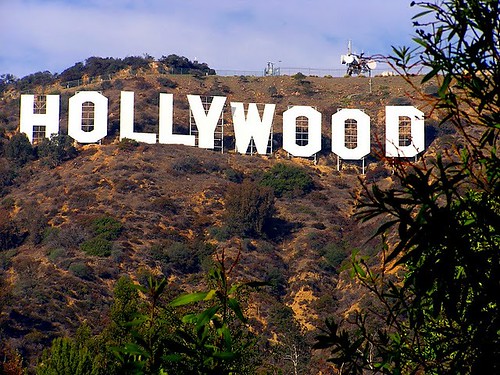
8. Hollywood’s Ripple Effects: Strikes and the Shifting Release Schedule
Vince Vaughn’s career trajectory and his perceived public visibility haven’t solely been influenced by his deeply personal choices or well-considered creative shifts; broader, industry-wide events have also played a significant, and often critically overlooked, role. One of the most impactful of these recent events was undoubtedly the 2023 Writers Guild of America (WGA) strike, which effectively brought much of Hollywood’s vast production machinery to a grinding standstill. These widespread and unavoidable disruptions inevitably created a substantial bottleneck for project releases, directly and tangibly affecting when and how audiences would ultimately see his latest and upcoming work, contributing to the perception of a reduced presence.
Vaughn himself provided invaluable clarity on this complex issue in a revealing interview with The New York Times, directly attributing delays in his recent projects to the pervasive, industry-wide labor action. He explicitly stated that many of his highly anticipated upcoming ventures, including the compelling 2024 Apple TV+ drama series “Bad Monkey,” experienced significant and unavoidable setbacks precisely because of the strike. This candid and direct explanation provides crucial context for why some loyal fans might perceive a reduction in his overall output, making it abundantly clear that these delays were often due to external, systemic factors rather than a personal withdrawal from his acting commitments.
The ripple effect of these profound industry events extended to numerous other projects that audiences are eagerly anticipating. Vaughn specifically mentioned two additional films, “Nonnas” and “Easy’s Waltz,” which both feature the legendary co-star Al Pacino, as prime examples of works that have faced similar, frustrating delays. He highlighted these as “films to look out for once they’ve been released,” underscoring the crucial point that a substantial backlog of completed or near-completion projects is currently awaiting their turn in the public sphere. These widespread postponements emphatically mean that while Vaughn has been actively and continuously working, the tangible fruits of his labor simply haven’t reached screens or streaming platforms at the expected, pre-strike pace.
It is critically important to recognize that these industry-wide disruptions were not at all unique to Vaughn but affected countless actors, writers, directors, and productions across the entire Hollywood ecosystem. The strikes of 2023 created an unprecedented and formidable challenge for the entire entertainment industry, impacting everything from initial shooting schedules to intricate post-production processes and final distribution timelines. Therefore, any perceived decrease in his immediate public presence, or the slower rollout of his projects, can be largely and accurately contextualized within these broader, systemic challenges that temporarily halted the usual, rapid flow of content and visibility within the industry.
The undeniable influence of significant industry events like the WGA strike cannot be overstated when meticulously analyzing Vince Vaughn’s recent and evolving career. These powerful external forces have undeniably shaped the release schedule of his projects, creating a discernible lag between his continued work and its eventual public consumption. When thoughtfully considered alongside his strategic pivot to robust production, his deeply personal family-first philosophy, and his ongoing exploration of diverse genres, these multifaceted elements collectively explain why “The Real Reason You Don’t Hear From Vince Vaughn Anymore” is a complex and rich tapestry of personal decisions, profound creative evolutions, and the inherently unpredictable nature of Hollywood itself. He undeniably continues to be an active, evolving force in entertainment, just perhaps in ways less immediately visible to the casual observer.
Vince Vaughn’s journey through Hollywood is a compelling narrative of adaptation, strategic evolution, and profound personal growth. Far from truly disappearing, he has deliberately and thoughtfully recalibrated his distinguished career, choosing meaningful engagement over relentless ubiquity. Whether it’s through his entrepreneurial ventures in pickleball, his incisive commentary on the changing face of comedy, or his powerful and nuanced performances in dramatic and diverse television roles, Vaughn continues to meticulously shape his remarkable legacy on his own discerning terms. His story is a vibrant testament to an enduring talent, proving that true influence often lies not in constant, overwhelming visibility, but in the thoughtful and purposeful pursuit of passion and creative purpose, continuously reinventing himself for new audiences and challenges.



